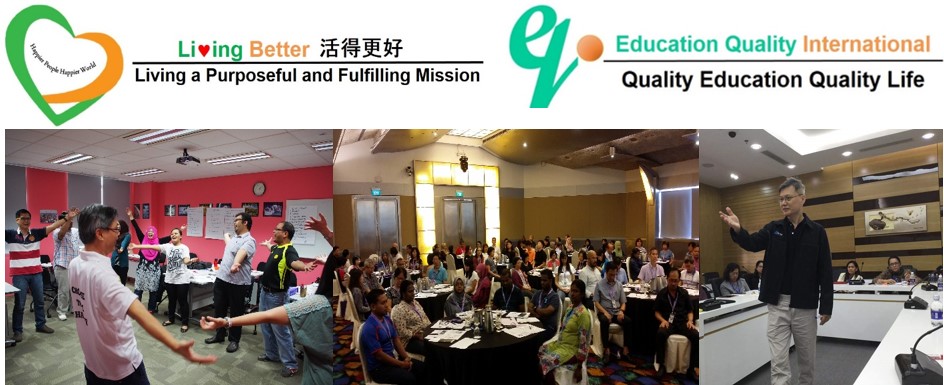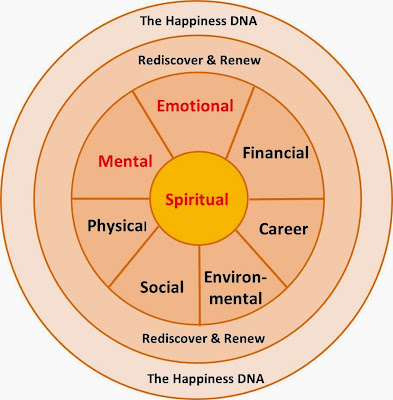Since the founding of Positive psychology in 1998 by Dr. Martin Seligman, there was no lack of polls, surveys and indicators to measure a nation or workplace happiness. In Singapore, JobsCentral started to measure and publish its work happiness indicator since 2009. In the same year, Asiaone conducted a poll to measure how happy Singaporeans were. The most controversial poll was the Gallup’s most and least emotions countries ranking report released in 2012 which had kept both politicians and Singaporeans ticking. These reports have made politicians, media, organisations and Singaporeans more aware of their personal and employee’s well-being and happiness. For examples, the World Happiness Report 2013 released by United Nations has ranked Singapore as the 30th happiest country in the world. The latest Gallup poll showed that Singapore had recorded the best improvement in ranking in the positive experience index in 2012. Without such publicity from the press and media harbouring on the issue of happiness, it would be impossible for Singapore and Singaporeans to work at improving their happiness index.
Creating an awareness can be said to be the start of any change cycle in human behaviours. Human behavioural
change is a continuous process of creating self-awareness, finding one’s life
purpose, making changes, acting upon them, reflecting the lessons learnt, and
taking conscious effort to progress in fulfilling one’s life purpose.
Happiness can be
defined as the subjective measure of life satisfaction or dissatisfaction and a life that is worth living. It
can be categorised into seven levels as documented below.
Happiness is a natural pursuit of human beings and it can be learned. First, is to identify the sources of happiness, and next, is to learn the various skills to cultivate happiness. The sources of happiness can be broadly classified into external and
internal. External sources of happiness are short-lived and external to us.
They include financial, career, environmental, social and physical. Internal
sources are permanent and they help to create an internal condition that is
conducive to cultivate happiness in our genes. They include mental, emotional
and spiritual. The Happiness DNA is illustrated in the diagram below.
Financial. Being
financially adequate to make ends meet is an important source of happiness.
A person cannot be happy if he is worried about how to make ends meet. Money,
can indeed buy happiness but only temporarily as it is never enough to keep up
with the materialistic lifestyles.
Career. We spend more
than one-third of our lifetime at work and it is important whether we can
find happiness and meaning in our daily work. Do what you love and love what you do. Dr. Martin Seligman, the father
of positive psychology, found that a person can find happiness in what he does
if he is able to take advantage of his signature strengths at work.
Environmental. Residential studies in the United States have shown
that houses close to nature or green space promote well-being and reduce mental
fatigue of people who live there. This affects a person’s mental attitude,
which in turn affects his state of feeling good. The feeling of peace,
contentment, enjoyment and other positive emotions brings happiness. Both
physical and social environments are important in promoting well-being and good
feelings.
Social.
Happiness is not just about being happy but it is also about bringing
happiness to people around us. Research has shown that relationship with spouse, children, parents, colleagues and friends is an important source of happiness. To improve social relationship, one has to think sameness rather than differences, see goodness in human beings rather than their weaknesses, and do sweetness to foster better relationship.
Physical. Physical
health is an important source of happiness as it affects both the physical and
mental ability of a person. Good health brings happiness and happiness
brings better health. In a 2002 Australian study (published in the American Journal
of Health Promotion), participants who were happy and satisfied found that they
were 1.6 times healthier than the group who were unhappy.
Mental. Ed Diener, the University of Illinois
psychology professor emeritus, who lead the review of more than 160 studies on
the connection between a positive state of mind and overall health and
longevity has found 'clear and compelling evidence' that happier people enjoy
better health and longer lives. Being happiness is a conscious choice and we
are responsible for the choice that we made - be it happy or not.
Emotional. Psychologist Barbara
Fredrickson and author of the book “Positivity”, says that focusing on
day-to-day feelings of satisfaction can lead to a happier life, and that an
awareness of the present moment, paying attention to human kindness, and
enjoying nice weather can increase positivity in one's mental outlook.
Spiritual. Spiritual
source of happiness is not about religion or faith but about having a clear sense
of purpose in life. Discovering one’s life purpose and passion, and directing all
energies towards it raises happiness. Live by design and choice rather than by
default is the way to true happiness or enlightenment.
True happiness is not about just being happy yourself but about bringing happiness to others. Altruism is an important ingredient in leading a happy life as illustrated below.
Inquiry into
happiness challenges us to rethink the way we live, work and play. By choosing to live in a
way that prioritises the happiness of ourselves and of those around us, we can create
a world filled with happiness and peace. A place that we call “heaven”.













